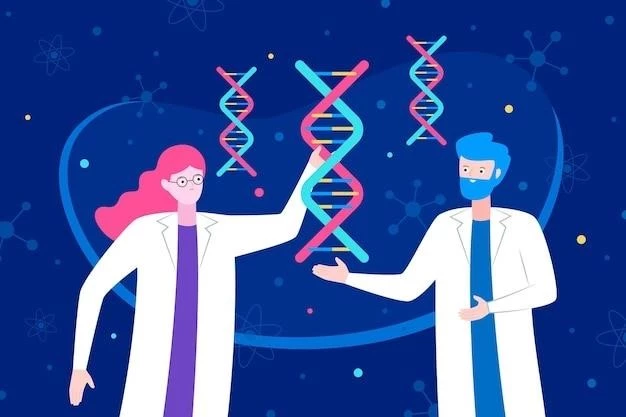Chromosome 1 Abnormalities
Exploring genetic disorders associated with Chromosome 1‚ ongoing research on mutations‚ and the crucial role Chromosome 1 plays in disease development․ Discovering deletion syndromes‚ therapies for related conditions‚ diagnostic testing for anomalies‚ and insights into inherited diseases․
Genetic Disorders Linked to Chromosome 1
Chromosome 1 abnormalities can lead to various genetic disorders such as cri-du-chat syndrome‚ familial adenomatous polyposis‚ and Parkinson’s disease․ These disorders result from gene mutations or structural changes in Chromosome 1‚ impacting the production of essential proteins and functioning of specific cells․ Understanding the genetic mechanisms underlying these disorders is crucial for diagnosis‚ treatment‚ and genetic counseling․
Research on Chromosome 1 Mutations

Ongoing research on Chromosome 1 mutations aims to unravel the intricate molecular mechanisms underlying genetic disorders and diseases associated with Chromosome 1 anomalies․ Scientists investigate the impact of specific gene mutations‚ structural rearrangements‚ and gene expression patterns on disease development․ Advanced technologies like genome sequencing play a pivotal role in identifying and characterizing Chromosome 1 mutations‚ paving the way for targeted therapies and personalized medicine approaches․
Role of Chromosome 1 in Disease Development
Chromosome 1 plays a critical role in the development of various genetic disorders and diseases․ Alterations in genes located on Chromosome 1 can disrupt normal cellular processes‚ leading to conditions such as cancer‚ Alzheimer’s disease‚ and diabetes․ The diverse functions of genes on Chromosome 1 encompass cellular growth‚ metabolism‚ and immune response regulation․ Understanding the contributions of Chromosome 1 to disease pathogenesis is essential for developing targeted interventions and precision medicine strategies․
Chromosome 1 Deletion Syndromes
Chromosome 1 deletion syndromes are rare genetic conditions caused by the loss of a portion of Chromosome 1․ Examples include 1p36 deletion syndrome and 1q21․1 deletion syndrome․ These syndromes exhibit a wide range of symptoms‚ including intellectual disability‚ developmental delays‚ and distinctive facial features․ Management of Chromosome 1 deletion syndromes involves multidisciplinary care focusing on addressing individualized medical‚ developmental‚ and educational needs․ Research continues to enhance understanding and improve interventions for individuals affected by these syndromes․
Therapies for Conditions Associated with Chromosome 1
Therapeutic approaches for conditions linked to Chromosome 1 abnormalities vary based on the specific disorder․ Treatment may include medication to manage symptoms‚ supportive therapies such as physical or speech therapy‚ and in some cases‚ surgical interventions․ In the realm of precision medicine‚ targeted therapies that focus on correcting genetic defects associated with Chromosome 1 mutations are being explored․ Multidisciplinary care involving healthcare professionals from various specialties is essential for providing comprehensive and personalized treatment plans for individuals affected by Chromosome 1-related conditions․
Diagnostic Testing for Chromosome 1 Anomalies
Diagnostic testing for Chromosome 1 anomalies involves a range of techniques‚ including karyotyping‚ chromosomal microarray analysis‚ and fluorescence in situ hybridization (FISH)․ These tests help identify chromosomal abnormalities‚ such as deletions or duplications on Chromosome 1‚ allowing for accurate diagnosis of genetic disorders and conditions associated with Chromosome 1․ Molecular genetic testing can pinpoint specific gene mutations within Chromosome 1‚ guiding personalized treatment strategies and genetic counseling for individuals and families at risk of inherited chromosomal anomalies․
Chromosome 1 and Inherited Diseases
Chromosome 1 is implicated in numerous inherited diseases‚ ranging from single-gene disorders to complex multifactorial conditions․ Inherited mutations on Chromosome 1 can predispose individuals to diseases such as breast cancer‚ Charcot-Marie-Tooth disease‚ and familial hypercholesterolemia․ Understanding the genetic basis of these inherited diseases on Chromosome 1 is crucial for risk assessment‚ early detection‚ and the development of targeted intervention strategies․ Genetic counseling and comprehensive genetic testing play essential roles in managing inherited diseases associated with Chromosome 1․
